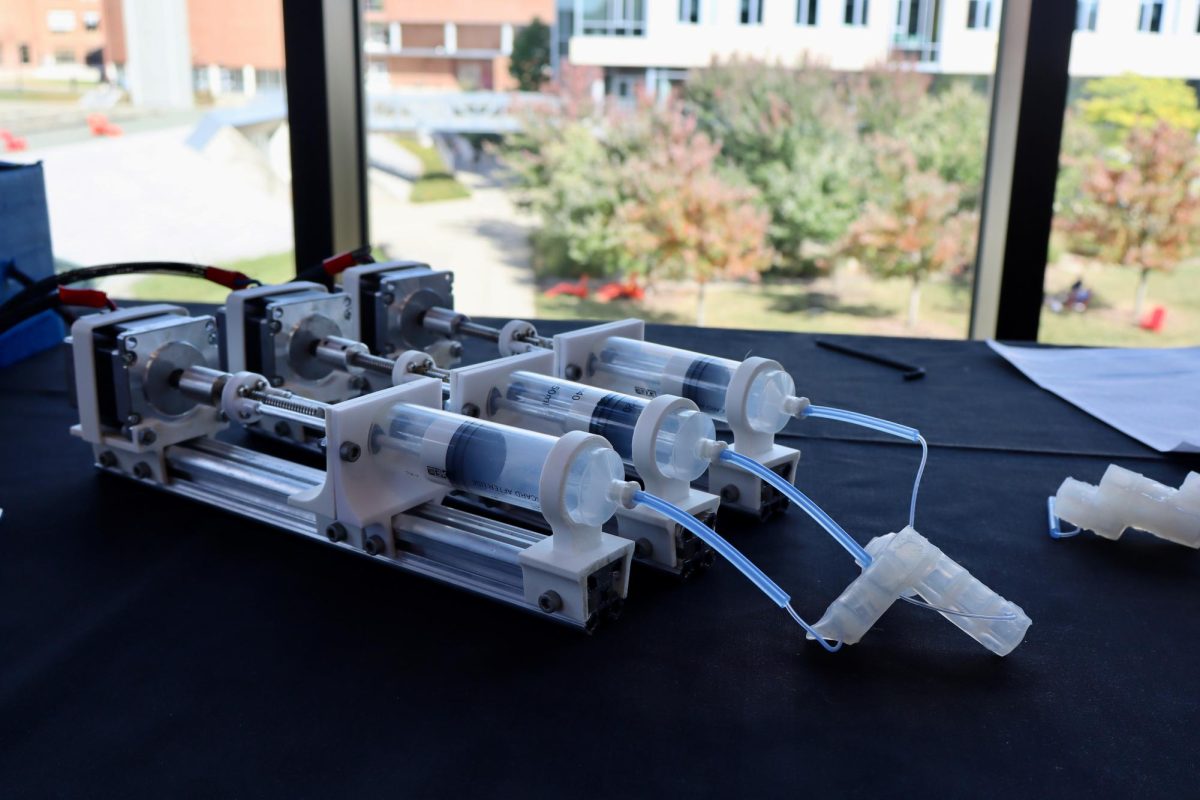
Neil Forbes, a professor of chemical engineering at the University of Massachusetts, has been awarded a five-year, $1.56 million grant from the National Institute of Health to research and develop strains of the salmonella bacteria that can target and kill cancer cells in tumors.
“It could lead to a way to treat cancer, specifically breast cancer,” said Forbes, who has been working with salmonella since 2001.
These salmonella work by invading cancer cells through the cell membrane, according to Forbes. Once the salmonella have detected they have entered cancer cells, it opens up, releasing its contents inside of the cancerous cells.
The contents of the salmonella vary between two options. One of the possibilities to be contained in the salmonella is peptides, which seek to interrupt the activities between two intra-cellular proteins, the enzyme protein phosphatase 1 and the regulator NIPP1.
“When you interrupt that interaction, it typically leads to cell death,” Forbes said.
The salmonella could also carry a genetic material which, once inside the cancer cell, converts into short hairpin RNA. shRNA then attempts to silence two regulatory genes, NIPP1 and EZH2.
Forbes hypothesized this could revert cancer cells to a state in which they would be unable to metastasize, or spread throughout the body.
While salmonella is typically toxic in humans, the strain being used to kill these cancer cells has been shown to be safe through animals and humans, and, unlike normal salmonella, targets cells in tumors.
“We do it by manipulating their genetics,” Forbes said.
Forbes said salmonella is being used in these experiments because the bacteria can be manipulated, and can be bio-engineered with relative ease. The study of salmonella’s potential to prevent disease is a new field, with the earliest papers on the subject having only been published in 1997.
While salmonella has already been shown to be able to place the necessary peptides and genetic material into cancer cells, the NIH grant will cover researching and developing salmonella that can enter tumors.
“The grant is for experiments to show salmonella will silence target genes in tumors and that peptides will eliminate metastasis,” Forbes said.
The NIH is one of the premier sources for biomedical funding. But achieving funding from the NIH is an extremely competitive process. Funding right now is very tight, and it is difficult for most applicants to successfully achieve it.
“I’m very proud of having succeeded in a competitive funding environment,” Forbes said.
The $1.56 million grant will cover research over the next five years, and will mainly be used to pay students and researchers working on these experiments during the next half decade.
There are still many obstacles which stand between the current salmonella cells and an effective cancer treatment, but Forbes believes the bacteria could be very helpful in preventing the spread of cancer throughout the body.
“It could be very helpful for women who have breast cancer and fear its recurrence,” he said.
Stuart Foster can be reached at [email protected] and followed on Twitter @Stuart_C_Foster.


















